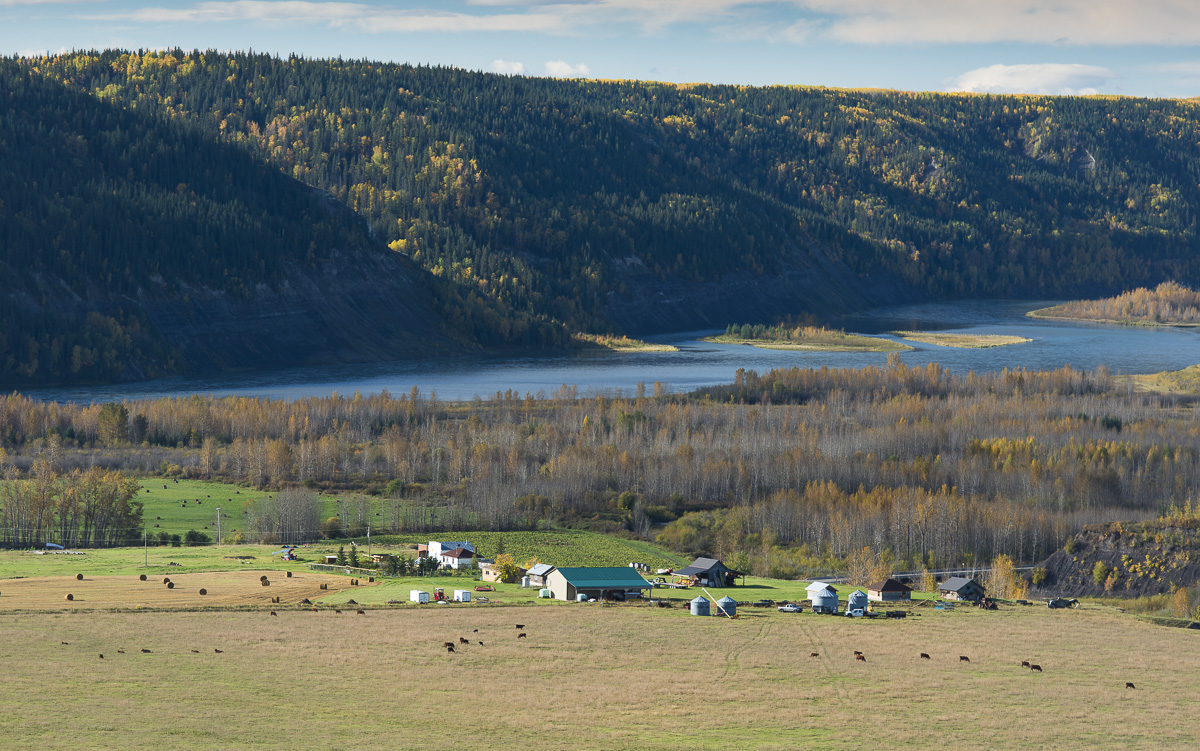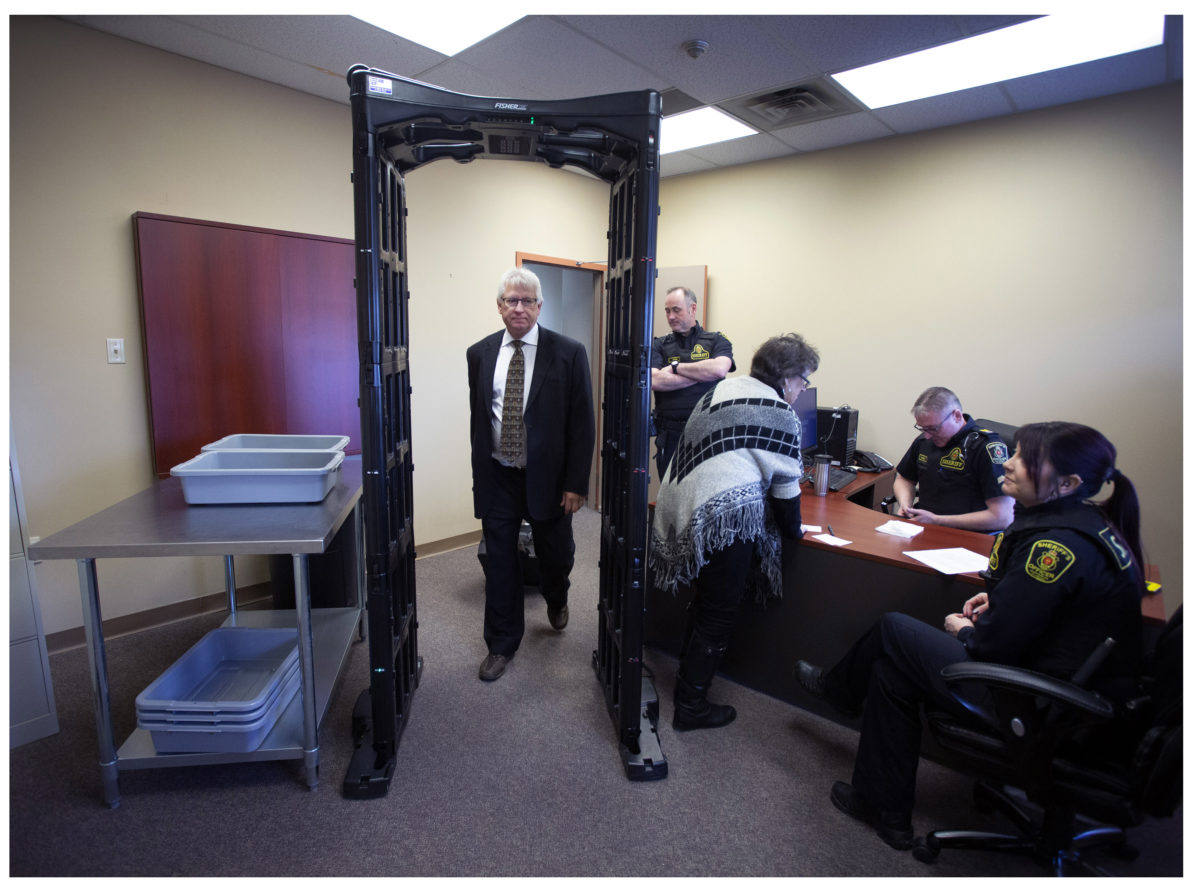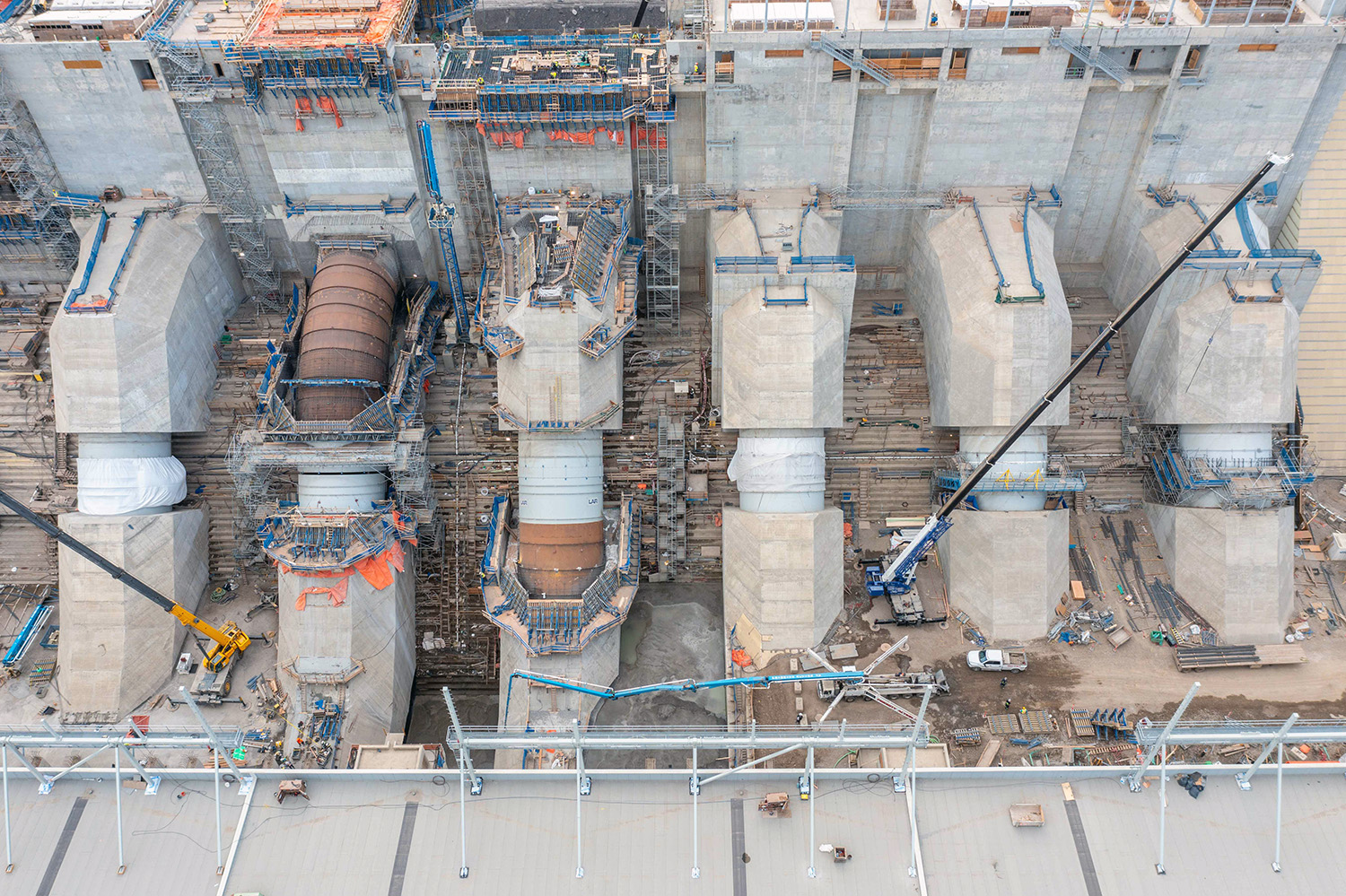
Ontario’s public service heads back to the office, meaning more traffic and emissions
For 15 years and counting, my commute from Mississauga to Toronto has been mired by...
BC Hydro has apologized for failing to disclose more than $128 million in contracts it awarded without competition for the Site C dam, despite being legally required to release the information through freedom of information legislation.
The utility issued its apology in August, four months after it reported spending $430 million in sole-source contracts for the controversial hydroelectric project from 2020 through 2022. The numbers were provided in response to a freedom of information request filed by The Narwhal.
In an email, BC Hydro told The Narwhal it made a mistake and now reports spending more than $558 million over the three-year period on direct-award contracts for the hugely overbudget project without any public bidding or open competition.
“BC Hydro has investigated the reasons for the missing information and can advise it was caused by human error in how the data was compiled. We can also advise that this was an isolated incident that has now been corrected,” the public utility wrote in the email. “We apologize for this oversight.”
The new information released by BC Hydro also reveals the utility spent almost $92 million in sole-source contracts for Site C dam engineering services from beleaguered engineering firm SNC Lavalin from 2020 through 2022. In April, the public utility said it had only awarded about $62 million in no-bid contracts to the Quebec-based engineering firm, which in 2013 was banned from World Bank contracts for eight years due to fraud and corruption. The utility’s initial response also neglected to mention one contract for SNC Lavalin worth more than $28 million.
The publicly funded dam, on the Peace River in British Columbia’s northeast, will help power the province’s new LNG export industry. Once complete, the $16-billion dam will flood 128 kilometres of the Peace River and its tributaries, destroying some of Canada’s best farmland, habitat for more than 100 at-risk species, local water sources, Indigenous burial sites and traditional hunting, trapping and fishing grounds.

The hydro project has been plagued with troubles, including an unstable foundation for the earthen dam, powerhouse and spillways that top B.C. civil servants knew about more than one year before the public was informed. One senior bureaucrat who was aware of the weak foundation was responsible for preparing Site C dam documents for the B.C. cabinet.
David Silver, a faculty member at the University of British Columbia’s Sauder School of Business, who is also the university’s chair in business and professional ethics, earlier said the lack of transparency around Site C direct-award contracts “suggests a culture which does not want to be held to account.”
The apparent secrecy makes it difficult for members of the public to track important developments in a project that has become a boondoggle for both the previous provincial Liberal government and the current New Democratic Party government. The debt-funded project is a year behind schedule and is set to cost B.C. ratepayers almost twice as much as planned when the power comes on-line, likely in 2025.
Governments in Canada generally go through a transparent bidding process for major contracts that allows multiple contractors to bid on the same project after a public body posts the criteria. A sole-source contract, also known as a no-bid or direct-award contract, allows selected suppliers to receive potentially lucrative contracts without any competition.
The federal government prohibits direct-award contracts worth more than $25,000 unless there is a special justification such as a national emergency or national security interests. The B.C. government allows direct-award contracts under certain circumstances — including in an emergency or if only one contractor is qualified or available to provide the goods, services or construction required. The province requires ministries granting such contracts to disclose recipients and the amount of money they receive, but BC Hydro and other Crown corporations are exempt from the policy.

BC Hydro earlier defended its procurement practices, saying its approach to the Site C project is designed to achieve “value for money for ratepayers,” as well as to meet the project schedule, budget and technical requirements.
For one previous no-bid contract, SNC-Lavalin provided BC Hydro with a “shadow estimate” for its forecasted $8.3-billion price tag for the dam. A shadow estimate reviews numbers and costs to confirm they are accurate. SNC-Lavalin’s estimate proved to be wildly wrong, missing the mark by more than $7 billion. Since then, the engineering firm has pulled in tens of millions of dollars in sole-source Site C dam contracts that were not part of the project’s original budget.
SNC Lavalin and other no-bid contract recipients were major donors to the BC Liberal Party, which pushed ahead with dam construction when it was in power, after it changed the law to strip the BC Utilities Commission — a watchdog that looks out for the public interest — from oversight. (The BC Liberals recently changed its name to BC United so people don’t confuse the party with the federal Liberals.)
The utilities commission had previously rejected BC Hydro’s plans to build the dam, saying the energy wasn’t required at the time and the project would have negative social and environmental impacts.
The BC NDP government chose not to restore the commission’s former oversight powers after it came to power in 2017. Following intense lobbying by construction trade unions, the government announced dam construction would continue, despite soaring costs and a fast-tracked independent review that found the same amount of energy could be produced for about one-half the current cost from a suite of renewables, including wind.

According to the updated response from BC Hydro, Vancouver-based engineering and consulting firm Klohn Crippen Berger received two previously undisclosed no-bid contracts — one for more than $14 million and another $2-million contract over the three-year period. That’s on top of almost $42 million in direct-award contracts to Klohn Crippen Berger BC Hydro first reported.
M&M Resources Inc., a private clearing, logging and civil earth works company, garnered an additional $23 million in no-bid contracts over the three-year period, for a total close to $30 million. Tracker Contracting, a road and lease construction company, earned an additional $513,000 in direct award contracts over the three years than first reported, for a total of almost $13 million.
The recipients of approximately one-quarter of the no-bid contracts, along with the amount each received, were redacted from both lists BC Hydro provided on the grounds they could reveal legal advice, harm the conduct of negotiations between BC Hydro and an Indigenous governing entity or “reasonably result in harm to ongoing negotiations.” In the supplementary list of no-bid contracts totalling $128 million, BC Hydro redacted the names of the recipients of contracts with a total value of about $56 million.
Silver said he found it “deeply troubling” that names of no-bid contract recipients and the amount of money they received were redacted from the documents. He said it’s also troubling that information about the contracts was only available through a freedom of information request and the public has no idea who is making huge decisions about how to spend public funds.
BC Hydro and the B.C. government have withheld detailed information about the finances and status of the Site C project from the public since construction began in 2015, prompting international hydro dam construction expert Harvey Elwin to describe the high level of confidentiality surrounding the project as “extraordinary.” Elwin said he had never encountered such secrecy during his five decades designing, developing and managing large hydroelectric projects around the world, including China’s Three Gorges dam.
Enbridge Gas will face Waterloo Region in a hearing before the Ontario Energy Board to renew an agreement that would allow the company to continue...
Continue reading
For 15 years and counting, my commute from Mississauga to Toronto has been mired by...

For our last weekly newsletter of the year, we wanted to share some highlights from...

The fossil fuel giant says its agreement to build pipelines without paying for the right...